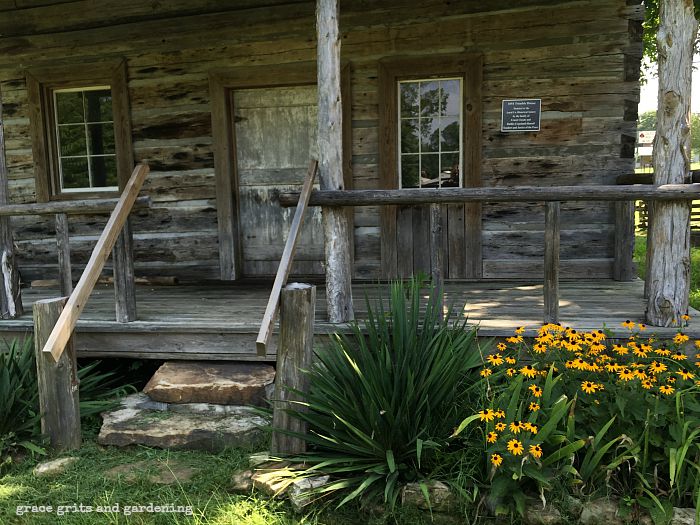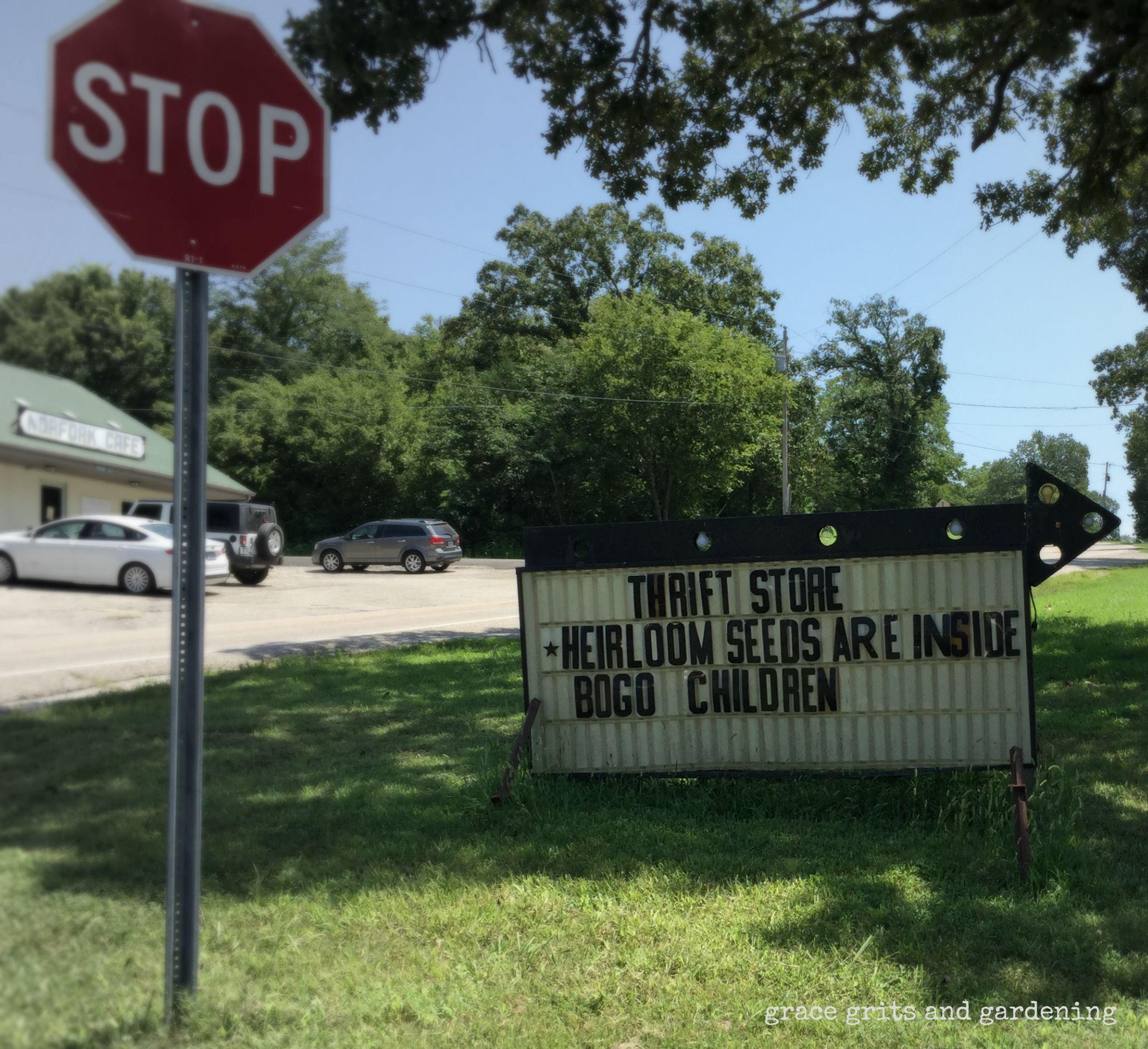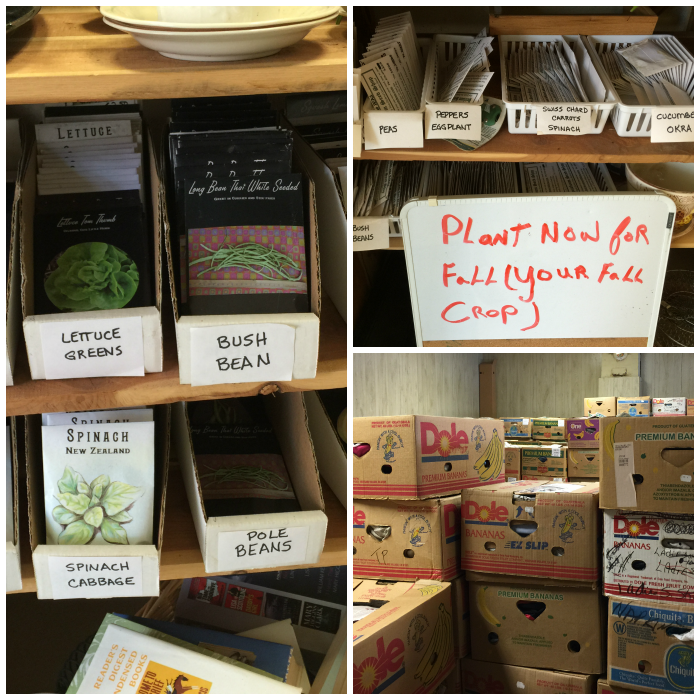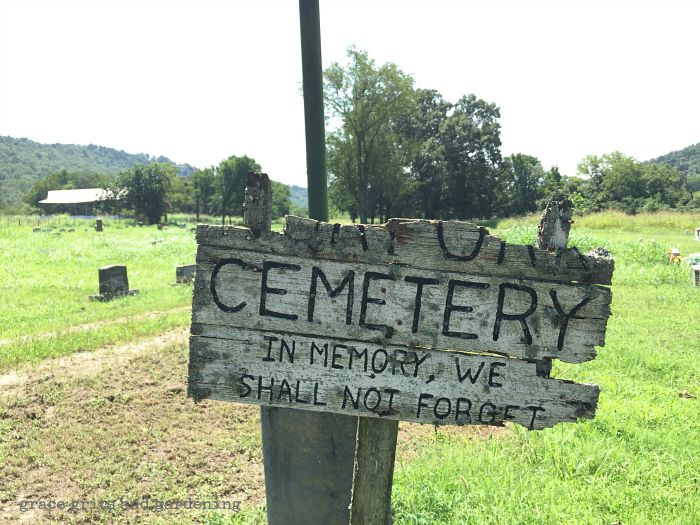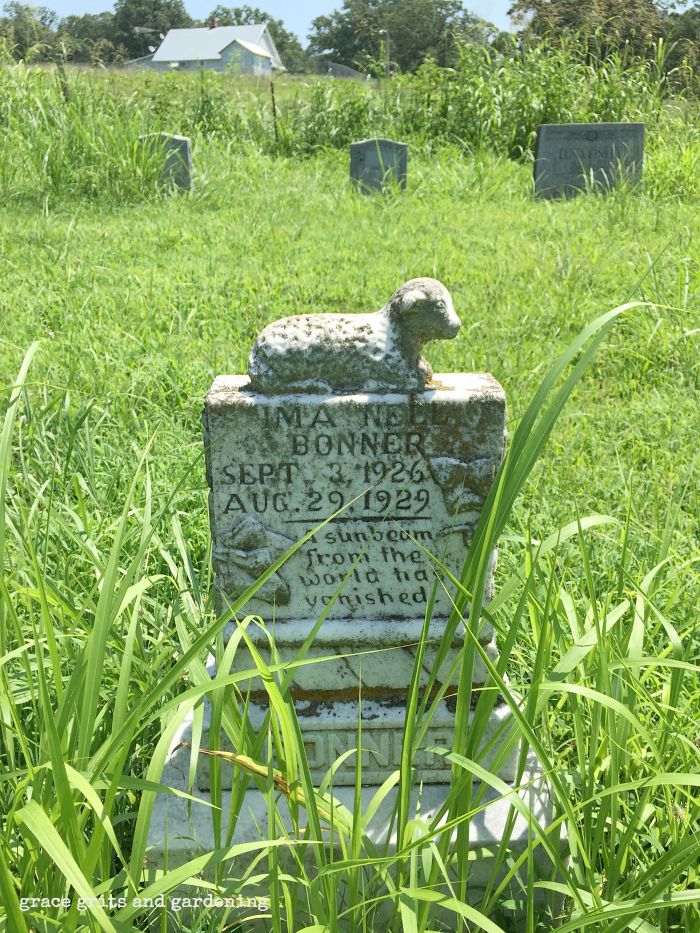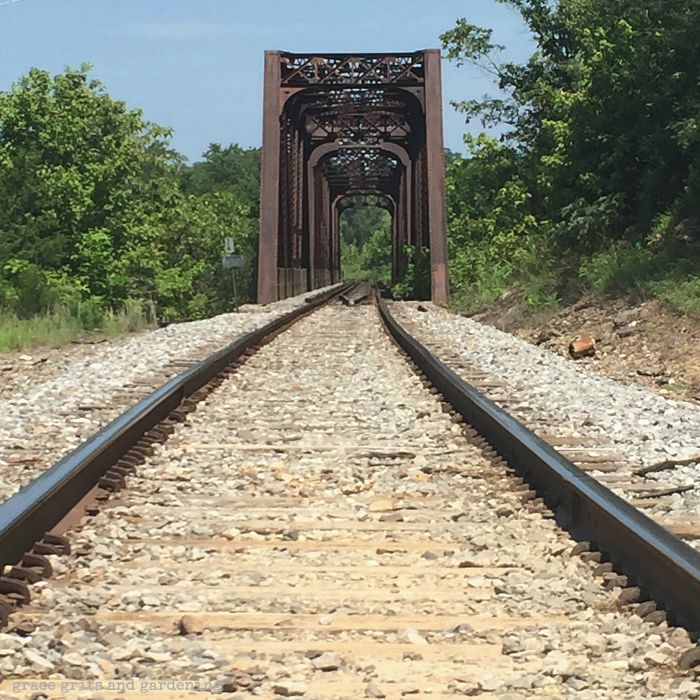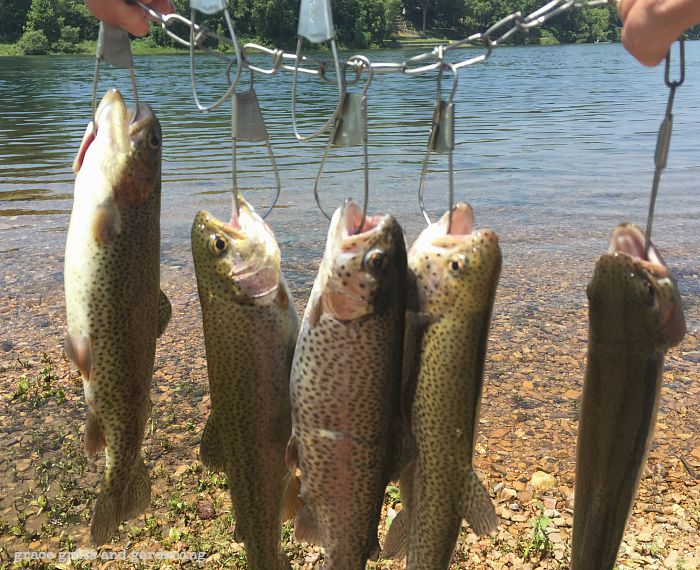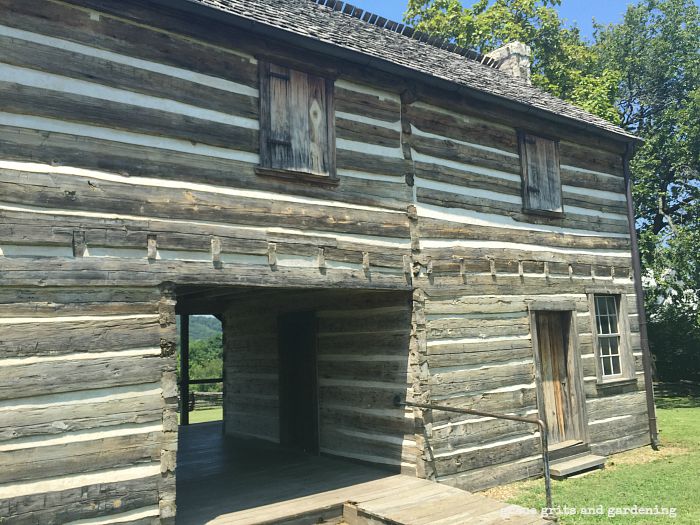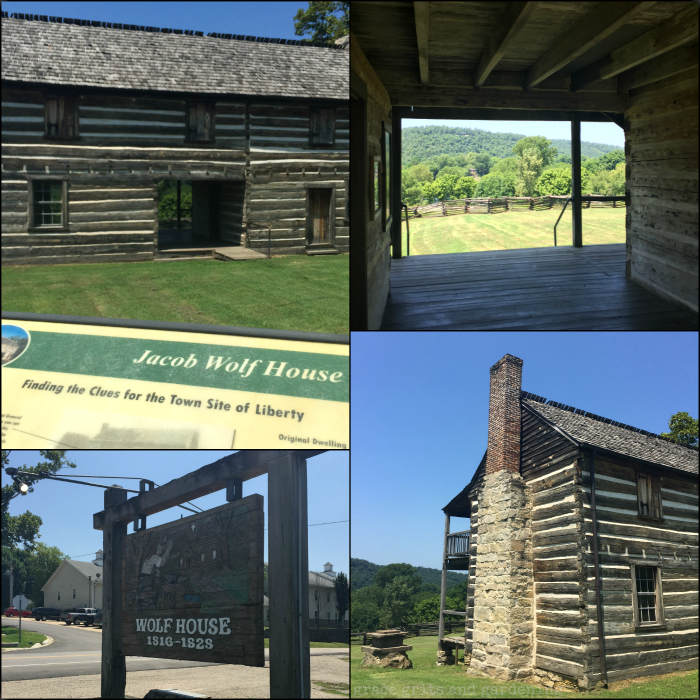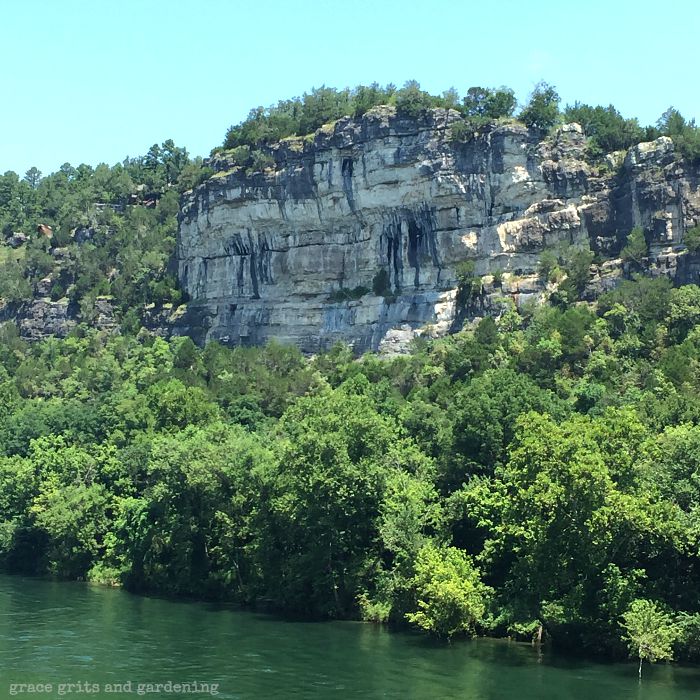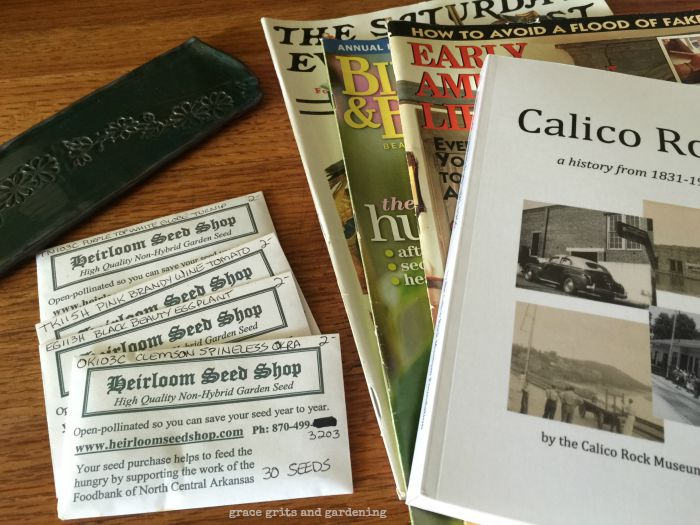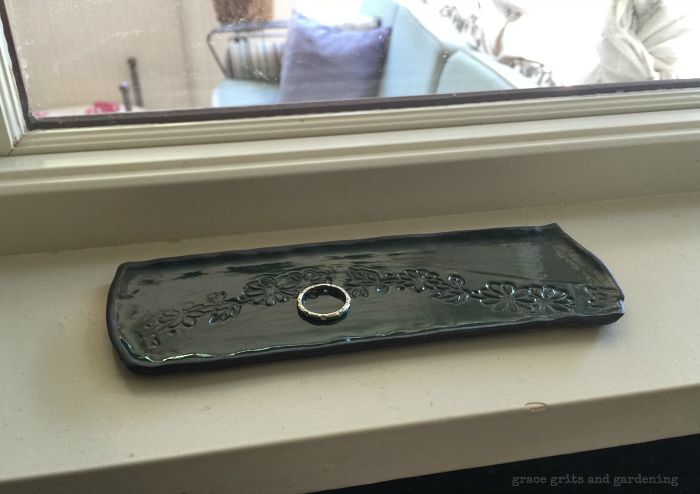Woo-hoo, this begins Part Two of my day spent exploring the Ozarks. If you missed the first part of the story where I searched for hobos and drank a butterscotch malt, click HERE. Before leaving Calico Rock, I stopped to visit the Trimble log cabin, home to Arkansas’ earliest settlers. A few years ago, the cabin was moved eleven miles from its original location in Dolph to its current home on Highway 56 across from the Cumberland Presbyterian Church. Built from virgin hardwood short-leaf pine, the Trimble cabin is one of the few remaining pre-Civil War cabins standing in Arkansas.
As I headed back toward the lake, I made several stops in the small town of Norfork. First, the Food Bank of North Central Arkansas.
This sign lured me in.
Heirloom seeds are inside… Okay, how wonderful is this?
This place was fantastic with several rooms filled with clothes and household items, a food bank pantry and heirloom seeds for the win! Talk about teaching a man to fish…The director’s passion for helping others showed. I knew this was the perfect place to spend the rest of my shopping allowance so I bought three vintage magazines (for my Little Free Library) and seeds for the seed exchange drawer.
(Maybe all food banks have seeds? If not, they should.)
Next stop, a cemetery, of course. I’m forever wandering around in old cemeteries, and this is just the sort of old sign that would make me stop in the road and turn around no matter how busy I pretended to be.
This may be the saddest most heart-wrenching tombstone I’ve ever seen. Eighty-six years after the death of this child I never knew, I can feel this mother’s pain long after she’s gone from this earth. A sunbeam from the world has vanished.
I wandered around in this cemetery for a while, but the afternoon was brutally hot and the weeds were tall.
The highway ran parallel to the railroad track I had visited earlier that morning. Again, I crossed and stopped to see what I could see. There’s something about the nostalgia of a railroad track. Railroads turned settlements into towns, brought commerce, people, more opportunity.
At the town of Norfork, the Norfork River joins up with the White River on the other side of the railroad track. I met a fisherman who was kind enough to let me photograph his trout. Good eatin’.
It’s impossible to visit Norfork, without spending time at the Wolf House—the oldest public structure in Arkansas and the first permanent courthouse in the Arkansas Territory for Izard County.
In 1809, President Thomas Jefferson appointed Major Jacob Wolf as Indian Agent to the Arkansas Cherokee Nation in the northern section of the District of Arkansas, Louisiana Territory. Wolf and several Negro slaves poled a flatboat up to the mouth of the Big North Fork of the White River where they began to clear the land and construct the log house… Major Wolf supervised the Indian workmen in constructing the two-storied, double-log mansion. Yellow pine was used exclusively and each log was hewn and dovetailed to fit perfectly. The slaves built a blacksmith shop nearby and fashioned the wrought iron hinges and rivets to hang the doors and window shutters. They also made the very few square cut nails used in the building. (Baxter County Historical and Genealogical Society)
Interesting fact: John P. Houston, brother of legend Sam Houston, served as a county clerk in this courthouse.
That’s pretty much it for my idyllic day in the Ozarks. Here’s one parting shot of the stunning bluffs overlooking White River. I won’t tell you how I got that shot… (#anythingforapicture)
Grace Grits and Gardening
Farm. Food. Garden. Life.
[tweetthis]Ozark adventure—North Central Arkansas Food Bank has #heirloom #seeds! @ARTourism @Arkansasgov #Norfork #CalicoRock [/tweetthis]
P.S. My souvenirs for the day—seeds, reads and local art:)
Musical Pairing:
Rosanne Cash, 500 Miles
